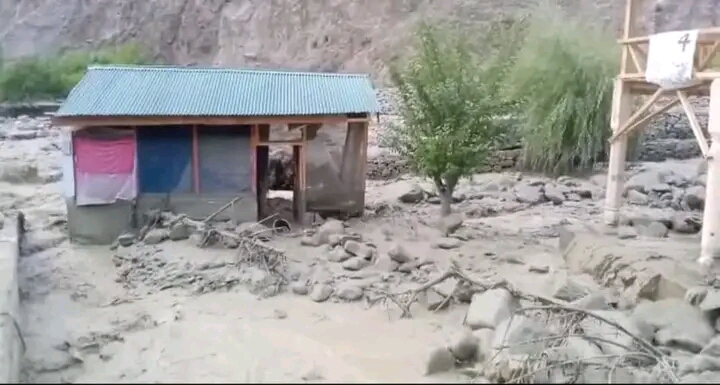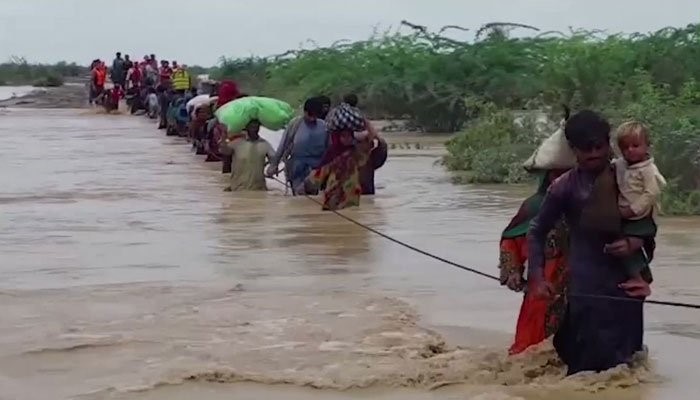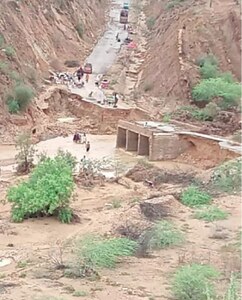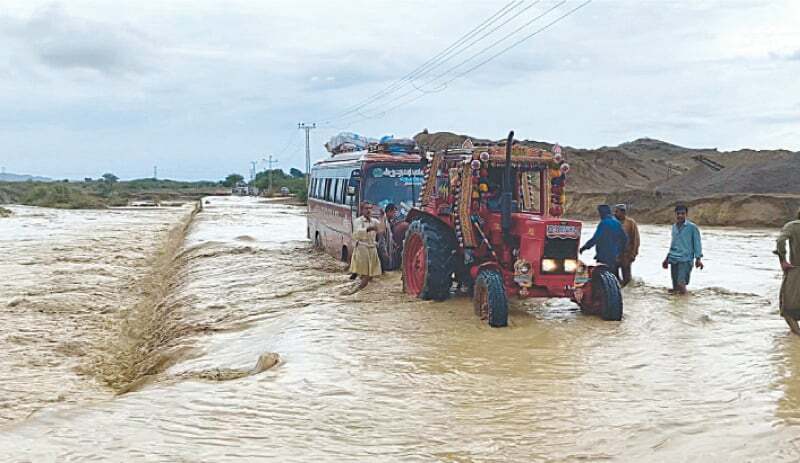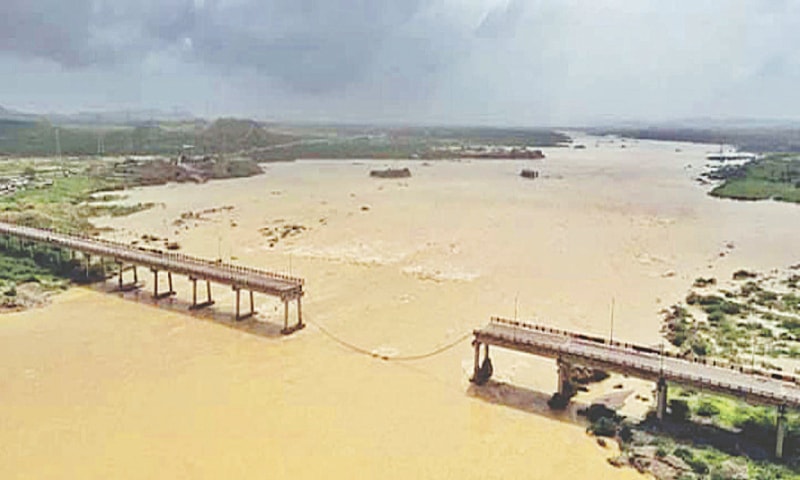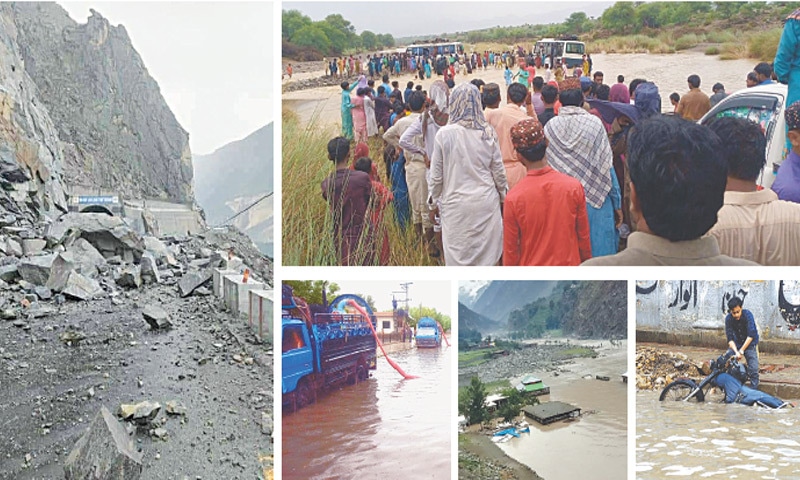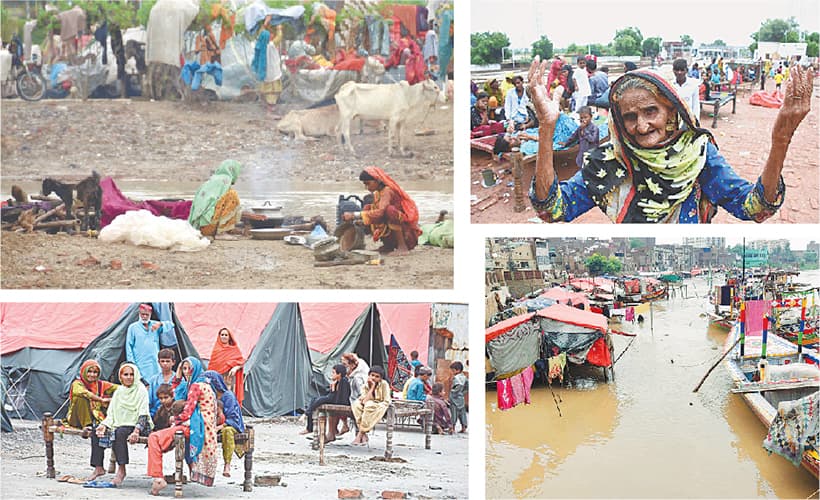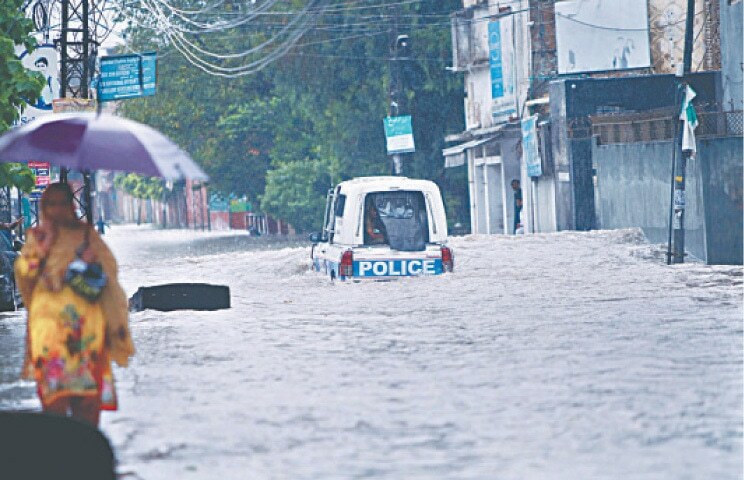Islamabad, 23rd Aug: The Awami Workers Party (AWP) has called for a mobilisation of public resources and urgent media coverage of the devastation caused by ongoing monsoon-related flooding in Sindh, Balochistan, Khyber-Pakhtunkhwa, Saraiki Waseb, Chitral, Gilgit-Baltistan and Azad Kashmir.
Despite the scale of the destruction being equivalent to the floods of 2010, the AWP has criticised the corporate media and ruling classes for continuing to prioritise palace intrigues and power games due to which lives continue to be lost and precious time and resources squandered that should be dedicated to flood relief.
AWP President Yousuf Mustikhan and General Secretary Bakhshal Thalho have said that official figures understate the actual scale of the disaster; thousands have lost their lives while millions have been displaced from their homes and livelihood losses are far beyond any meaningful estimate.
The impacts of the destruction will not be restricted to the short-term as entire agricultural and livestock-rearing districts are inundated with water which will force hundreds of thousands of people to migrate to already saturated urban centres.
The AWP and other progressives have consistently warned that the existing capitalist economic system based on unbridled profiteering and unsustainable consumption is destroying ecosystems across Pakistan. But these warnings have fallen on deaf ears, as the military establishment, along with lackey mainstream politicians have repeatedly demonstrated that they are concerned only with cynical tussles for power.
Rapid glacier melts in Gilgit-Baltistan, Chitral and Kashmir have triggered flash floods in the north of Pakistan with greater intensity every summer season. The 2010 floods in Sindh, Saraiki Waseb and Balochistan should have forced a rethink about capitalist ‘development’, deforestation, mass tourism and other triggers of flooding. But all of these worsening ecological crises and their fundamental causes have persistently remained grossly underreported in the mainstream media and off the agenda of political parties. As a result, millions of small and landless farmers and working masses, in general, are literally facing death by starvation as they lose everything to floods.
The AWP leadership has said that the destruction of local ecologies reflects both class privilege and patriarchal domination, and the futures of the vast majority of Pakistan’s 150 million youthful population is at stake; they face a dystopian future if the status quo remains unchallenged.
The rapacious pillage of water bodies, forests, and minerals must stop, as must the unbridled construction of gated housing schemes, five-star hotels, malls and other symbols of conspicuous consumption.
The AWP calls on all pro-people forces in ethnic peripheries and metropolitan Pakistan alike to build a mass political movement that can meet the challenges of the increasingly catastrophic effects of climate change.
In the immediate instance, the AWP appeals to all segments of society to do whatever they can to address the immediate shelter, food, health and other needs of the millions who have been affected by the floods. All forms of assistance must be mobilised, and the government must redirect public monies away from unproductive and elite-centred purposes toward flood relief. The announcement of an ‘international donor conference’ represents the standard band-aid response to such disasters, whereas what is required is a fundamental reordering of the state’s priorities.
The AWP remains committed to mobilising all progressive voices – and Pakistan’s young people in general – away from the politics of hate so that a truly dystopic future is averted.

